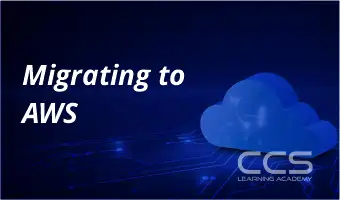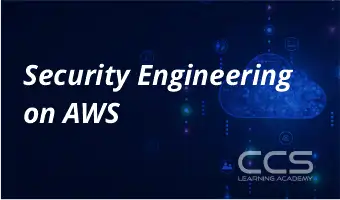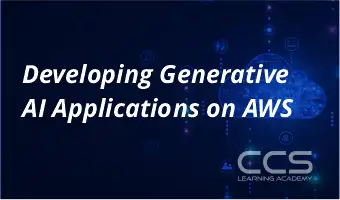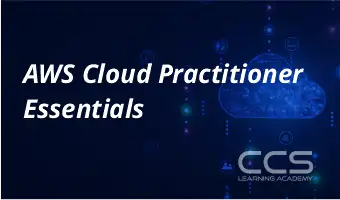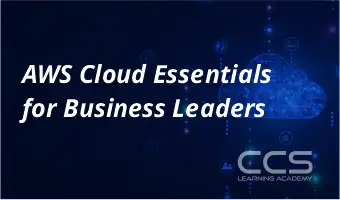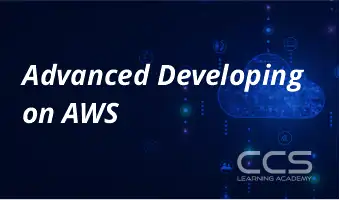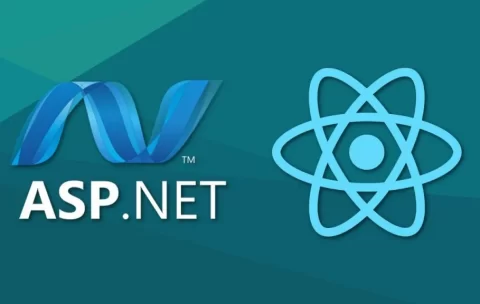Filter by Topic
Filter by Vendor
What you'll learn
Explain the fundamental concepts and principles of a business continuity management system (BCMS) based on ISO 22301
Interpret the ISO 22301 requirements for a BCMS from the perspective of an auditor
Evaluate the BCMS conformity to ISO 22301 requirements, in accordance with the fundamental audit concepts and principles
Plan, conduct, and close an ISO 22301 compliance audit, in accordance with ISO/IEC 17021-1 requirements, ISO 19011 guidelines, and other best practices of auditing
Manage an ISO 22301 audit program
Security Engineering on AWS
Security is a concern for both customers in the cloud, …
What you'll learn
State an understanding of AWS cloud security based on the CIA triad.
Create and analyze authentication and authorizations with IAM.
Manage and provision accounts on AWS with appropriate AWS services.
Identify how to manage secrets using AWS services.
Monitor sensitive information and protect data via encryption and access controls.
Identify AWS services that address attacks from external sources.
Monitor, generate, and collect logs.
Identify indicators of security incidents.
Identify how to investigate threats and mitigate using AWS services.
Developing Generative AI Applications on AWS
This course is designed to introduce generative AI to software …
What you'll learn
Define the importance of generative AI and explain its potential risks and benefits
Identify business value from generative AI use cases
Discuss the technical foundations and key terminology for generative AI
Identify which prompt-techniques are best-suited for specific models
Identify potential prompt misuses
Describe architecture patterns that can be implemented with Amazon Bedrock for building generative AI applications , and more.
AWS Cloud Practitioner Essentials
This course is for individuals who seek an overall understanding …
What you'll learn
Summarize the working definition of AWS
Differentiate between on-premises, hybrid-cloud, and all-in cloud
Describe the basic global infrastructure of the AWS Cloud
Explain the six benefits of the AWS Cloud
Describe and provide an example of the core AWS services, including compute, network, databases, and storage
Identify an appropriate solution using AWS Cloud services with various use cases
Describe the AWS Well-Architected Framework
Explain the shared responsibility model
Describe the core security services within the AWS Cloud
Describe the basics of AWS Cloud migration
Articulate the financial benefits of the AWS Cloud for an organization’s cost management
Define the core billing, account management, and pricing models
Explain how to use pricing tools to make cost-effective choices for AWS services
AWS Cloud Essentials for Business Leaders
In this course, you will learn the fundamental concepts of …
What you'll learn
Explain the role of information technology (IT) in an organization for business transformation
Explain the customer value proposition for using the cloud across industries
Define key characteristics of cloud computing
Explain the cloud business model
Identify key security practices of cloud computing
Frame the cloud business value using the Cloud Value Framework
What you'll learn
Analyze a monolithic application architecture to determine logical or programmatic break points where the application can be broken up across different AWS services
Apply Twelve-Factor Application manifesto concepts and steps while migrating from a monolithic architecture
Recommend the appropriate AWS services to develop a microservices based cloud-native application
Use the AWS API, CLI, and SDKs to monitor and manage AWS services
Migrate a monolithic application to a microservices application using the 6 Rs of migration
Explain the SysOps and DevOps interdependencies necessary to deploy a microservices application in AWS
.Net Secure Coding Camp (TT8320-N)
Discover the cutting-edge of cybersecurity and elevate your skills as …
What you'll learn
<b>Understanding Cybersecurity Concepts:</b> Gain a solid foundation in cybersecurity principles, the evolving threat landscape, and the language of the industry to better identify and address security issues in .NET applications.
<b>Ethical Bug Hunting Techniques:</b> Learn safe and appropriate methods for hunting bugs, ensuring responsible and ethical practices while working to uncover and address vulnerabilities in your applications.
<b>Web Application Security:</b> Master the skills required to analyze, identify, and mitigate vulnerabilities in web applications, following best practices and guidelines from organizations such as OWASP, WASC, CWE, and CERT Secure Coding Standard.
<b>Utilizing Industry-Standard Tools and Frameworks:</b> Acquire hands-on experience with widely used tools and frameworks, such as Visual Studio and .NET Cryptography, to effectively and efficiently secure your applications.
<b>Improved Problem Solving and Debugging:</b> Enhance your ability to identify, analyze, and resolve security issues in your applications through real-world case studies, labs, and expert instruction.
<b>Defensive Programming Techniques:</b> Learn and apply defensive programming techniques like securing trust boundaries, input validation, and proper exception handling to create more robust and secure .NET applications.
<b>Cryptography in .NET:</b> Develop a deep understanding of .NET cryptographic services, hash algorithms, symmetric and asymmetric encryption, and gain hands-on experience with a cryptography wrapper for .NET.
<b>Secure Software Development Processes:</b> Gain insight into secure software development processes, including the concept of "shifting left" and the implementation of secure design principles, enabling you to create safer and more reliable .NET applications.


